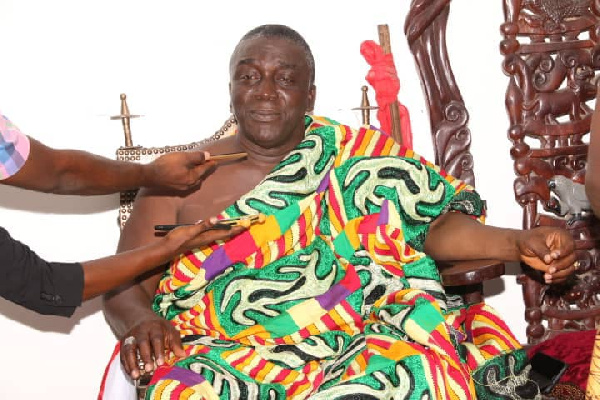Nana Kobina Nketsia V, the Paramount Chief of Essikado Traditional Area in the Western Region, has expressed his concern over the quantum of loans approved by Members of Parliament (MPs).
Speaking at a public forum commemorating 30 years of parliamentary democracy in Takoradi, the traditional ruler and scholar called for greater transparency in MPs’ voting records, particularly concerning loan agreements.
Nana Kobina Nketsia V highlighted the critical need for citizens to be aware of the voting patterns of their elected representatives, especially regarding the endorsement of loan agreements.
He urged that the public should be fully informed about the reasons behind their MPs’ decisions, particularly on loan approvals, which have contributed to Ghana’s current debt crisis.
Referencing specific MPs from his jurisdiction, Nana Kobina Nketsia V pointed out the cases of former Sekondi MP, Paapa Owusu Ankomah, and the current MP for Essikado-Ketan, Joe Ghartey.
He demanded clarity on their voting records and the rationale behind their support for various loan agreements, which have collectively contributed to the country’s economic challenges.
Expressing his frustration, Nana Kobina Nketsia V questioned the rationale behind the Parliament’s continued approval of numerous loan agreements without acknowledging their role in the country’s mounting debt burden.
He noted that the process of approving loans should involve greater accountability and responsibility, considering the long-term impact on the nation’s financial stability.
Nana Kobina Nketsia V emphasized the gravity of the situation, stating, “We are in debt and anytime they bring the loans, MPs vote and accept it as if we are mad people in this country.”
The recent Bank of Ghana Summary of Economic and Financial Data revealed a rise in Ghana’s public debt stock, reaching ¢402.4 billion in July 2022, equivalent to 68% of the Gross Domestic Product (GDP). This starkly contrasts with the World Bank’s projected debt-to-GDP ratio of 104.6% for 2022.
While the external debt remained relatively stable at $28 billion, representing 35.8% of GDP, the domestic debt showed an incremental increase due to significant government borrowing in the local financial market. Despite this, Ghana’s public debt situation remains a pressing concern, prompting leaders like Nana Kobina Nketsia V to call for greater accountability and transparency in decision-making processes, particularly concerning loan agreements.
Source: ghanaweb.com




